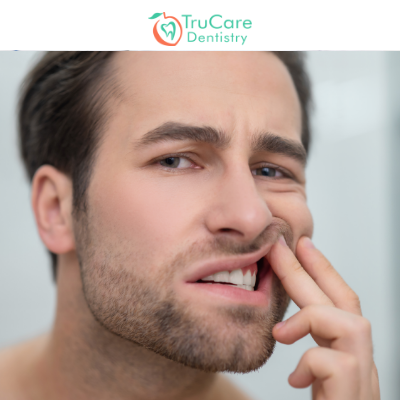12+ Tongue Care Secrets Revealed
The tongue, often considered a mirror to our overall health, plays a vital role in our daily lives, from facilitating speech and swallowing to aiding in the digestion of food. Despite its importance, tongues are frequently overlooked in our oral hygiene routines, leading to a buildup of bacteria, fungi, and other microorganisms. This neglect can result in bad breath (halitosis), taste disturbances, and even contribute to systemic diseases like diabetes and heart conditions. Embedding good tongue care habits into our daily routines can significantly enhance our quality of life, improve oral health, and bolster our confidence in social interactions.
The Importance of Tongue Care
Tongue care is an integral part of oral hygiene, often underscored by its direct impact on our general well-being. A clean, healthy tongue not only boosts our self-esteem by ensuring fresh breath but also aids in the proper digestion of food and the prevention of oral diseases. The tongue’s surface, covered with tiny bumps called papillae, can trap debris, dead cells, and bacteria. If not regularly cleaned, this can lead to an overgrowth of harmful microorganisms, potentially causing infections and other complications.
Tools for Tongue Care
Several tools and methods are available for cleaning the tongue, each with its unique advantages and preferred user bases.
- Tongue Scrapers: These are curved devices, typically made from stainless steel, copper, or plastic, designed to remove debris and mucus from the surface of the tongue. The process involves placing the scraper as far back on the tongue as possible and then pulling it forward, repeating the motion until the tongue feels clean. Tongue scrapers are highly effective and can be reused after proper cleaning.
- Toothbrushes: While primarily designed for brushing teeth, some toothbrushes have a built-in tongue cleaner on the back of the head. These can be less effective than dedicated tongue scrapers but are convenient for those who prefer a one-stop oral hygiene tool.
- Mouthwashes: Certain mouthwashes contain ingredients that can help reduce bacteria and fungi on the tongue, although their effectiveness may vary compared to physical removal methods.
Techniques for Effective Tongue Cleaning
The technique used for tongue cleaning can significantly impact its effectiveness. Here are a few tips to maximize the benefits:
- Start Slowly: If you’re new to tongue scraping, begin with gentle motions to avoid gagging. Gradually move the scraper further back as you become more comfortable with the process.
- Be Thorough: Ensure that you cover the entire surface of the tongue, including the edges and the underside, for a comprehensive clean.
- Use the Right Tool: Experiment with different materials and designs to find the tongue scraper that works best for you, considering factors like ease of use, comfort, and effectiveness.
Advanced Tips for Optimal Oral Health
Beyond the basics of tongue care, several advanced strategies can further enhance your oral hygiene and overall health:
- Regular Dental Checkups: Even with diligent home care, professional dental cleanings and checkups are crucial for detecting and preventing oral and systemic diseases early.
- Balanced Diet: Consuming a diet rich in fruits, vegetables, and whole grains can provide essential nutrients for healthy teeth and gums, including the tongue.
- Stay Hydrated: Adequate water intake helps maintain saliva production, which is vital for washing away bacteria and food particles, including those on the tongue.
Common Mistakes in Tongue Care
Despite the best intentions, several common mistakes can undermine the effectiveness of tongue care routines:
- Over-scraping: Being too aggressive with the tongue scraper can lead to bleeding, discomfort, and potentially creating an environment conducive to infection.
- Neglecting the Rest of the Mouth: Focusing solely on the tongue while ignoring other aspects of oral hygiene, such as brushing and flossing teeth, can lead to an imbalance in oral health.
- Inconsistent Routine: Irregular tongue cleaning can allow bacteria to accumulate, defeating the purpose of incorporating tongue care into your routine.
Innovations in Tongue Care
The field of oral hygiene is constantly evolving, with new products and technologies emerging to make tongue care more effective and convenient:
- Ultrasonic Tongue Cleaners: These devices use high-frequency vibrations to dislodge bacteria and debris, offering a potentially more efficient cleaning method.
- Antimicrobial Coatings: Some tongue scrapers and oral care tools now feature antimicrobial coatings designed to reduce the growth of harmful microorganisms on the device itself.
Conclusion
Embarking on a journey to prioritize tongue care not only contributes to better oral health but also has a broader impact on our overall well-being. By understanding the importance of tongue care, selecting the right tools, employing effective techniques, and avoiding common pitfalls, we can unlock a fresher, healthier mouth. As research and technology continue to advance, incorporating the latest innovations into our routines can further enhance our oral hygiene practices. In the end, a clean and healthy tongue is more than just a component of our oral health; it’s a key to unlocking our full potential in comfort and confidence.
Frequently Asked Questions
How often should I clean my tongue?
+Cleaning your tongue should be a part of your daily oral hygiene routine, ideally done once or twice a day, depending on your oral health needs and preferences.
Can I use my toothbrush to clean my tongue?
+While some toothbrushes have a built-in tongue cleaner, using a dedicated tongue scraper is generally more effective for removing bacteria and debris from the tongue’s surface.
What are the benefits of using an ultrasonic tongue cleaner?
+Ultrasonic tongue cleaners can provide a more thorough cleaning by using high-frequency vibrations to dislodge bacteria and debris, potentially offering a more efficient method than traditional scraping.
How can I prevent bad breath aside from cleaning my tongue?
+Preventing bad breath involves a comprehensive oral hygiene routine including brushing and flossing teeth, regular dental checkups, staying hydrated, and avoiding certain foods and tobacco products.
Are there any specific health conditions associated with poor tongue care?
+Poor tongue care has been linked to various health issues, including gum disease, tooth decay, diabetes, and heart disease, as the bacteria in the mouth can spread to other parts of the body.


